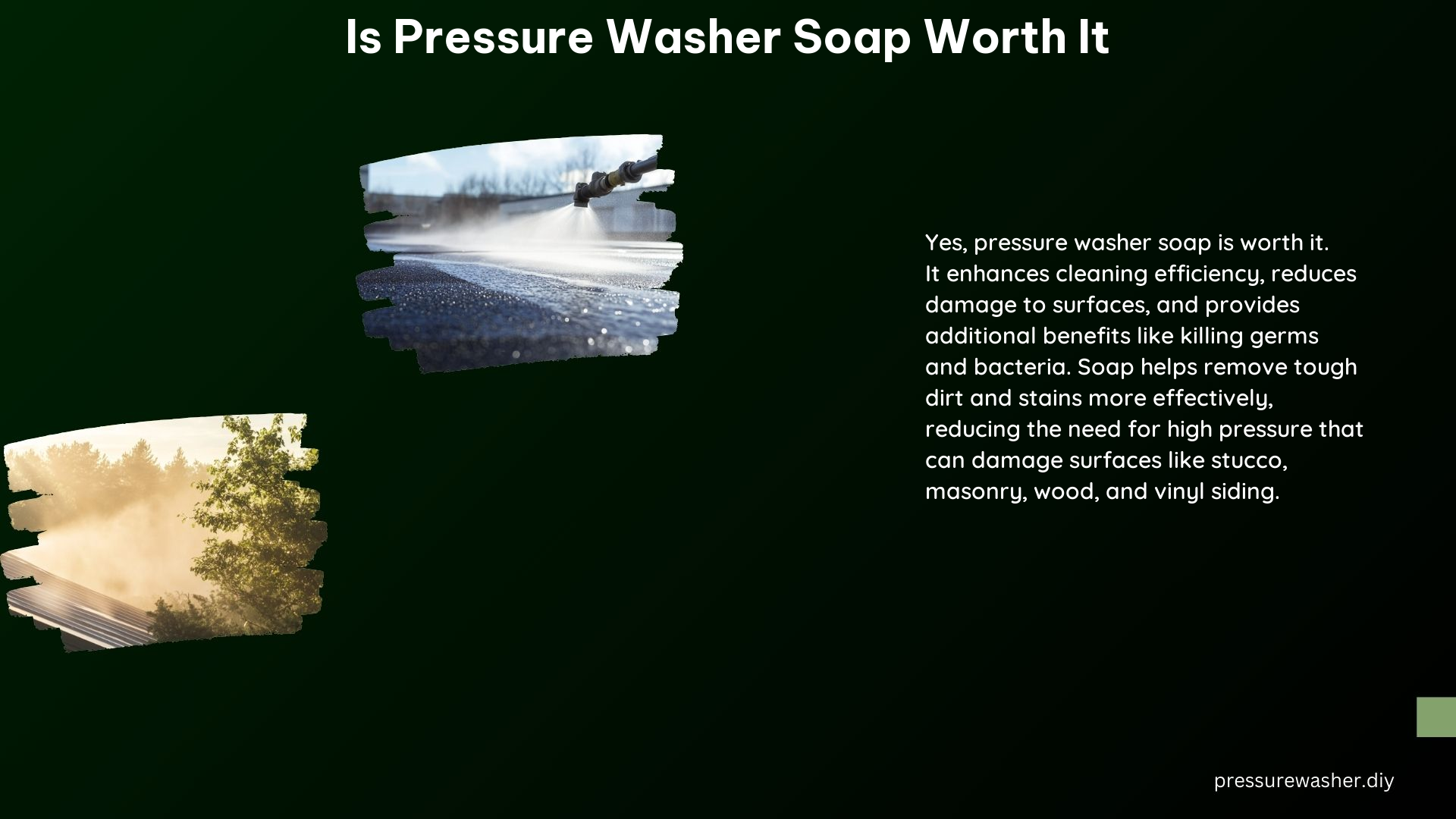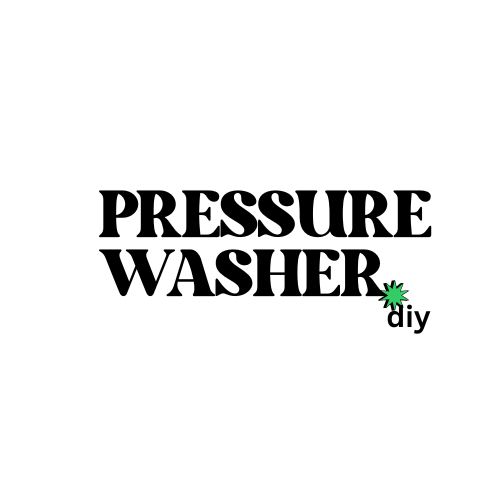Using a pressure washer can be a highly effective way to clean a variety of surfaces, from driveways and patios to siding and decks. However, the question of whether pressure washer soap is worth the investment is a common one among DIY enthusiasts and homeowners. In this comprehensive guide, we’ll explore the benefits, technical specifications, and best practices for using pressure washer soap to achieve the best cleaning results.
Benefits of Using Pressure Washer Soap
-
Improved Cleaning Power: Pressure washer soap is formulated with specialized surfactants and emulsifiers that help break down and suspend dirt, grease, and other contaminants. This allows the high-pressure water stream to more effectively remove these substances, resulting in a cleaner surface with less effort.
-
Reduced Pressure and Damage: By using soap, you can often reduce the pressure needed to clean a surface, which can help prevent damage to delicate materials like stucco, masonry, wood, and vinyl siding. The soap helps to lift and suspend the dirt, reducing the need for excessive pressure.
-
Longer-Lasting Results: Pressure washer soaps often contain biocides and antimicrobial agents that can help kill bacteria, mildew, and other microorganisms at a molecular level. This can lead to longer-lasting cleaning results, reducing the need for frequent re-cleaning.
-
Eco-Friendly Options: Many modern pressure washer soaps are formulated with biodegradable and environmentally-friendly ingredients, making them a safer choice for the environment compared to traditional detergents or degreasers.
Technical Specifications of Pressure Washer Soap

-
Surfactants: Pressure washer soaps contain specialized surfactants, such as anionic, cationic, and nonionic surfactants, that work to lower the surface tension of the water and help the soap penetrate and emulsify dirt and grime. The concentration and type of surfactants can vary depending on the intended use of the soap.
-
Downstream Injection: Many pressure washers are designed with a downstream soap injection system, which allows the soap to be introduced into the water stream after the pump. This helps to prevent corrosion and damage to the pump and other internal components of the pressure washer.
-
Concentration: Pressure washer soaps are typically highly concentrated and need to be diluted with water according to the manufacturer’s instructions. The recommended dilution ratio can vary from 1:10 to 1:50, depending on the specific soap and the cleaning task at hand.
-
pH Balance: The pH of pressure washer soaps is carefully formulated to be effective in cleaning while also being gentle on the surfaces being cleaned. Most pressure washer soaps have a pH range between 6.5 and 8.5, which is considered neutral to slightly alkaline.
-
Viscosity: Pressure washer soaps are designed to have a specific viscosity that allows them to cling to surfaces and remain in contact with the dirt and grime for an extended period, enhancing the cleaning effectiveness.
When to Use Pressure Washer Soap
-
General House Maintenance: Pressure washer soap is recommended for routine cleaning of exterior surfaces, such as siding, decks, patios, and driveways, to remove dirt, grime, and mildew buildup.
-
Tough Stains and Grime: Soap is particularly useful for removing stubborn stains and heavy buildup of grease, oil, and other contaminants, such as those found on garage floors, equipment, and vehicles.
-
Specialized Cleaning: Certain pressure washer soaps are formulated for specific cleaning tasks, such as engine degreasing, parts cleaning, and the removal of road film and other transportation-related grime.
Can I Use Regular Soap or Dishwashing Liquid?
No, it is not recommended to use regular soap or dishwashing liquid in a pressure washer. These products are not designed for high-pressure use and can cause damage to the equipment or the surface being cleaned. Pressure washer soap is specifically formulated to work with the high-pressure water stream and is safer for both the equipment and the environment.
Using regular soap or dishwashing liquid can lead to several issues, including:
- Foaming and sudsing, which can clog the pressure washer’s hoses and nozzles
- Corrosion and damage to the pump and other internal components
- Residue buildup on the cleaned surfaces, which can be difficult to rinse off
- Potential damage to the surface being cleaned, such as discoloration or etching
To ensure the best cleaning results and protect your pressure washer investment, it’s essential to use a soap that is specifically designed for pressure washer use.
Conclusion
Using pressure washer soap is a highly recommended practice for effective and efficient cleaning. It enhances the cleaning power, reduces the risk of damage, and provides longer-lasting results. By understanding the technical specifications and best practices for using pressure washer soap, you can maximize the performance of your pressure washer and achieve the best possible cleaning outcomes.
References
- “Do You Need Soap To Pressure Wash?” by Forever Self-Employed (YouTube Video)
- “Pressure Washing 101: With or Without Soap?” by Squeeky Clean
- “Do I really need all these chemicals/detergents?” on Reddit
- “Should I Use Soap When Pressure Washing?” by Hotsy Equipment Company
